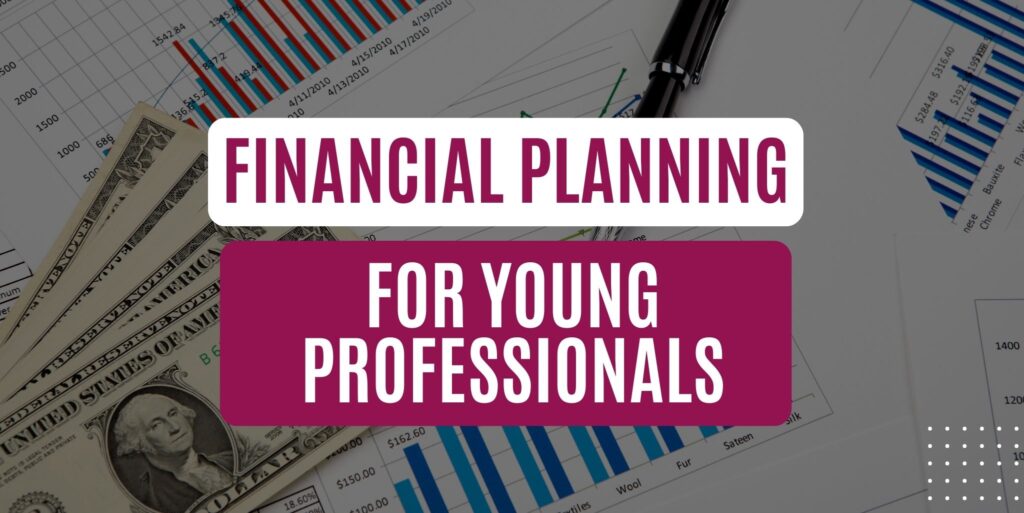Establishing solid financial planning can seem daunting in your younger years, especially when juggling student loan repayments or the responsibilities of a new mortgage leave you feeling financially tight. However, initiating financial planning early is paramount. Starting crafting a budget, enhancing financial literacy, and grabbing the fundamentals of investments, you can apply the savings for an unpredictable future, even in your 20s. In this article, we have the top 10 tips that every young person should know about how to manage their financial planning.
How to do Financial Planning?
-
Financial Literacy
Educate yourself on basic financial concepts such as budgeting, saving, investing, and managing Debt. Financial literacy is the basis for sound decision-making and long-term financial well-being. Take up admirable resources such as financial literacy websites, books, workshops, and online courses to improve your knowledge and confidence in managing your finances.
Individuals with higher levels of financial literacy are more likely to make informed financial decisions, accumulate wealth, and achieve financial goals. Young professionals can equip themselves by prioritizing financial education with the skills and knowledge necessary to steer the complexities of personal finance effectively.
-
Minimize Debt
For young professionals, Debt can be a significant barrier to financial freedom and strength. To develop a strategic repayment plan, you need to prioritize minimizing Debt. Start by dividing high-interest debts such as credit card balances and personal loans, as they can quickly accumulate and inhibit financial progress.
Consider reducing debts or negotiating lower interest rates to relieve the burden of repayment. Additionally, refrain from collecting undue Debt by practicing reliable borrowing habits and living within your means. By implementing the concept of minimizing Debt early, young professionals can free up financial resources for savings, investments, and other long-term goals.
-
Saving and Investing
Achieving financial independence is important as it requires saving and investing. It’s a crucial component of building wealth. Start by demonstrating a savings habit, setting aside a quantity of your income for future needs and goals. To earn competitive interest rates on your savings consider opening a high-profit savings account or a certificate of deposit (CD) while keeping funds easily accessible.
In addition to saving, start investing to develop your wealth over time. By researching investment options such as stocks, bonds, mutual funds, and exchange-traded funds (ETFs) to diversify your portfolio and mitigate risk.
-
Learn How to Budget
Budgeting is important to achieve financial goals. It’s a fundamental tool for managing finances effectively. Outline your spending habits and identify where you can manage or relocate funds to meet your financial goals. Develop a monthly budget that summarizes your income, expenses, and savings priorities.
You can use budgeting apps or spreadsheets to monitor your progress and make adjustments as needed. By thinking of a budget, young professionals can gain control over their finances, reduce unnecessary spending, and allocate resources toward achieving their long-term goals.
-
Keep Track on Your Spending Habits
Financial planning involves discipline, which is extremely important to make informed financial decisions. Regularly review your expenses to analyze ways, trends, and areas. It will help you to understand your spending habits and where you can make improvements. Distribute your resources effectively, and organize them into important categories to prioritize spending.
To streamline the process consider using expense-tracking tools or apps to gain insights into your spending behavior. By staying active in monitoring spending habits, young professionals can identify areas for improvement and make adjustments to fulfill financial stability and success.
-
Emergency Fund
An emergency fund performs as a financial protection net to protect against unexpected expenses or emergencies. It is an important element of financial planning. Savings accounts or money market funds, aim to save three to six months’ worth of living expenses in a liquid account. Emergency savings might assist you in paying for costs related to auto repairs, unexpected medical bills, or job loss.
Prioritize building financial protectors early in your career, and automate your contributions to the emergency fund to ensure consistent savings. By having an emergency fund in place, young professionals can supervise unforeseen circumstances with confidence and peace of mind, knowing they have a financial cushion to depend on.
-
Safe Wealth
Maintaining your wealth is essential to safeguarding your financial security against unforeseen dangers and setbacks. Obtain enough insurance to cover any losses and liabilities. Think about getting insurance for Health, life, disability, renters’ or homeowners’ insurance, and liability to guard against a variety of dangers. Knowing more about financial planning is key.
To ensure insurance coverage aligns with your evolving needs and circumstances, regularly review and update it. Additionally, consider estate planning strategies such as wills, trusts, and powers of counselor to protect your assets and ensure they are allocated according to your wishes in the event of inability or death.
-
Maintain Health
Prioritize your Health by maintaining a balanced lifestyle, exercising regularly, and eating nutritious foods, as financial planning goes hand in hand with physical and mental well-being. Invest in preventive healthcare measures such as regular check-ups, screenings, and vaccinations to protect against potential health issues and minimize healthcare costs in the long run.
Similarly, prioritize mental Health and well-being by managing stress, practicing self-care, and seeking support when needed. By prioritizing Health and well-being, young professionals can enhance their overall quality of life, productivity, and longevity, which are important components for future financial success.
-
Understand Your Taxes
To minimize tax liabilities and maximize savings, gain a basic understanding of tax laws, deductions, credits, and tax-advantaged investment strategies, as they play an important role in financial planning and can impact your overall financial picture. Consider consulting with a tax professional or utilizing tax preparation software to ensure compliance and optimize tax outcomes.
Take advantage of tax-advantaged retirement accounts, education savings accounts, and other tax-efficient investment conveyances to maximize tax benefits and grow your wealth over the period. By understanding the tax responsibilities and opportunities, young professionals can make strategic financial decisions and optimize their tax strategies to fulfill their financial goals. This is another way to do good financial planning.
-
Financial Planner
Leading the complexities of financial planning can be overwhelming, especially for young professionals with limited experience and expertise. Consider partnering with a qualified financial planner or counselor who can provide personalized recommendations, and procedures to your unique needs and goals.
A financial planner can assist you in developing a detailed financial plan, prioritizing your goals, and implementing strategies to achieve them effectively. As your financial situation arises, you can provide ongoing support, monitoring, and adjustments. By working with a trusted consultant, young professionals can gain confidence, clarity, and peace of mind knowing their financial future is in good hands.
Conclusion
Financial planning is a long trip, not a destination, and as a young professional, you have the opportunity to shape your financial future positively. By following these basic principles of budgeting, saving, investing, and continual learning, you can lead the complexities of personal finance with confidence and build a strong foundation for long-term success. Remember, the key lies in starting early, staying disciplined, and remaining flexible as you improve through different stages of your career and life. Your future self will thank you for the foresight and perseverance you invest in today.
Written by: Adeeba Shah



